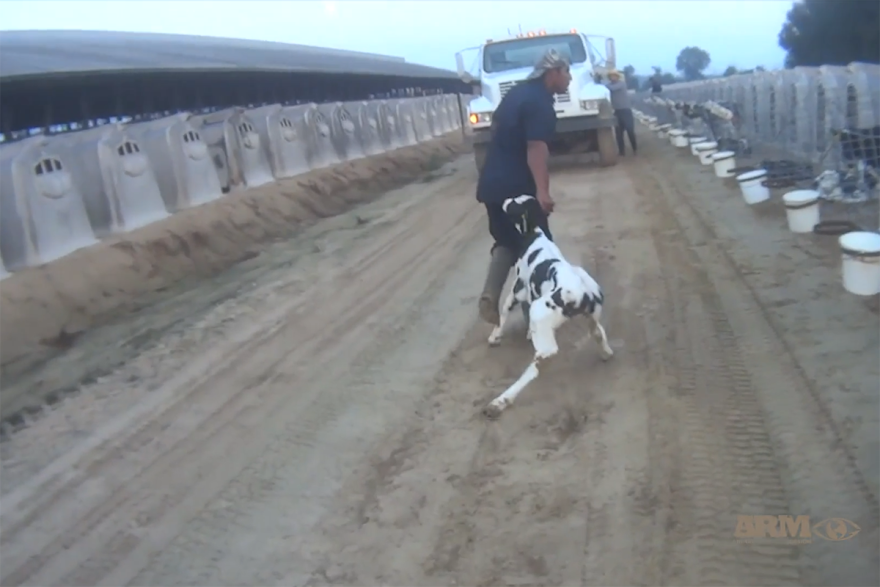FAIR OAKS, Ind. (AP) — Video exposing alleged animal abuse at a famous northwestern Indiana dairy farm is politically motivated, said an Indiana lawmaker who drafted legislation in 2013 that would have barred undercover video filming at the state's agricultural operations.
An animal rights group released disturbing footage Tuesday showing workers kicking and throwing young calves at the Fair Oaks Farm.
Retailers subsequently pulled the farm's products from their shelves.
State Sen. Travis Holdman, who sponsored the proposal, said it's too soon to say whether he'll refile the bill during the 2020 legislative session.
"Seeing as this is just a one-time incident that we're aware of, I don't think we need a knee-jerk reaction to do something legislatively necessarily," Holdman said. "I'm sure I'll be hearing from Farm Bureau folks about the incident and what they think needs to be done, if anything."
Holdman's bill would have made it a misdemeanor crime to snapshot or video record any agricultural or industrial activities without the property owner's written authorization. Legislators in at least 10 other states tried passing similar "ag-gag" laws, in part to discourage covert revelations of agricultural operations. But courts subsequently struck down several of those statutes as unconstitutional.
Holdman noted he has watched the Fair Oaks video and it's clearly politically driven because anyone who is concerned about animals would have attempted to halt the abuse.
"People who own farm animals want to take care of farm animals because they produce, and do what they need to do to be profitable, if you take care of those animals," Holdman said. "If you hire people that abuse them, they deserve to be fired."
He also criticized customers and businesses boycotting Fair Oaks dairy products after "an isolated incident."
"That doesn't solve the problem," Holdman added. "You just put people out of work when you do that."




